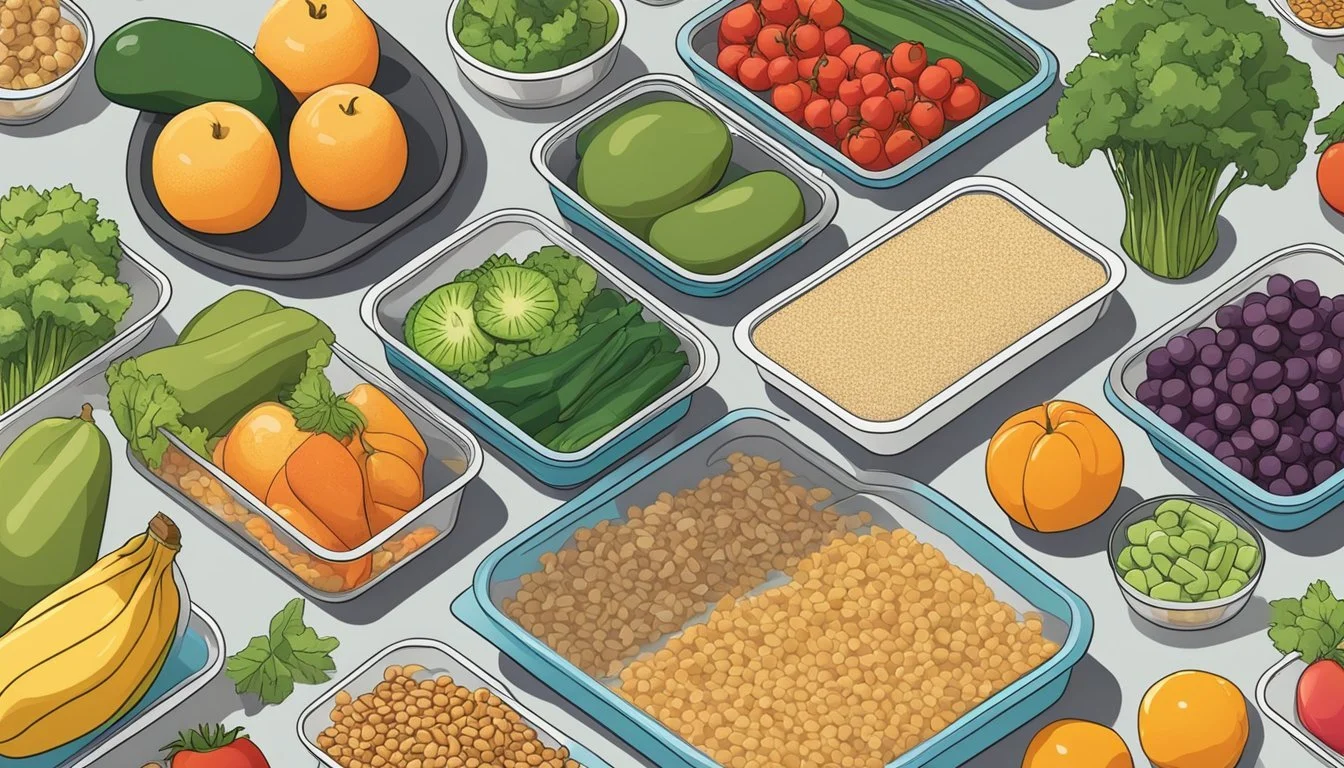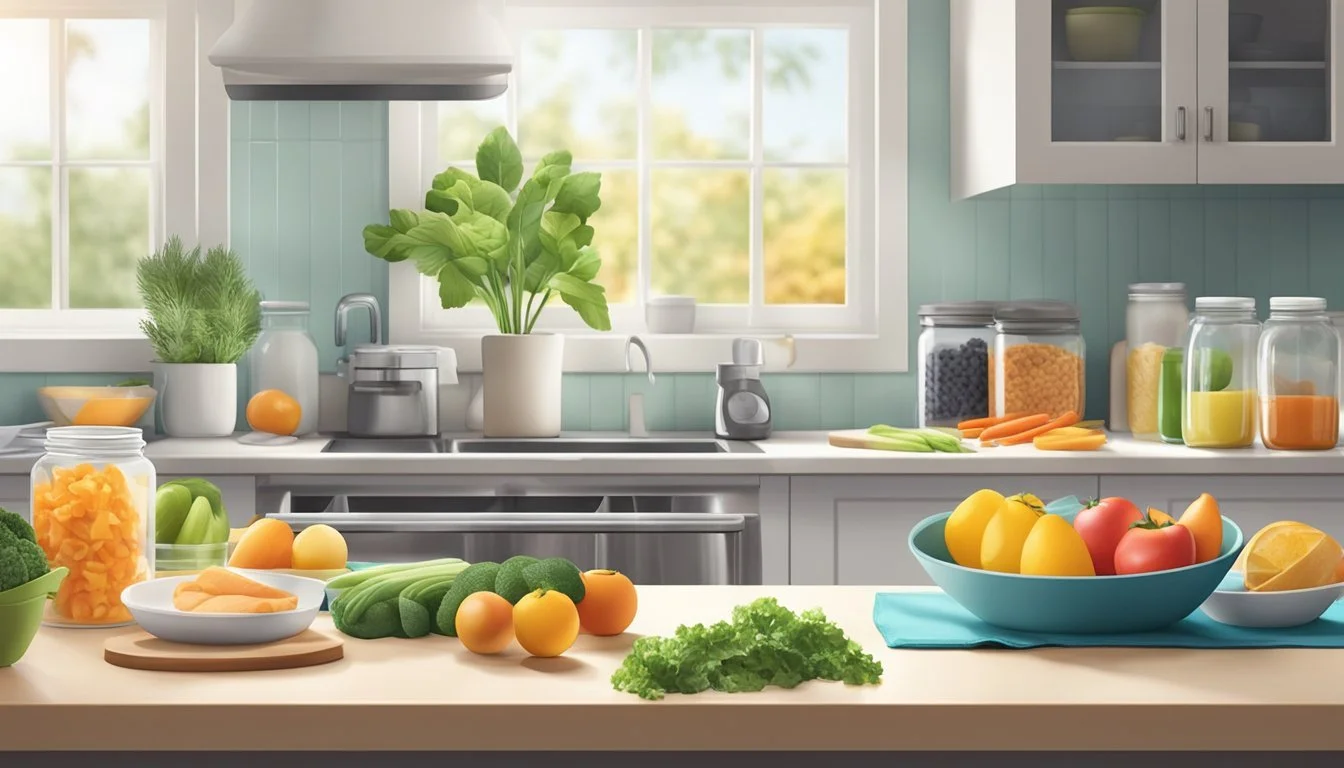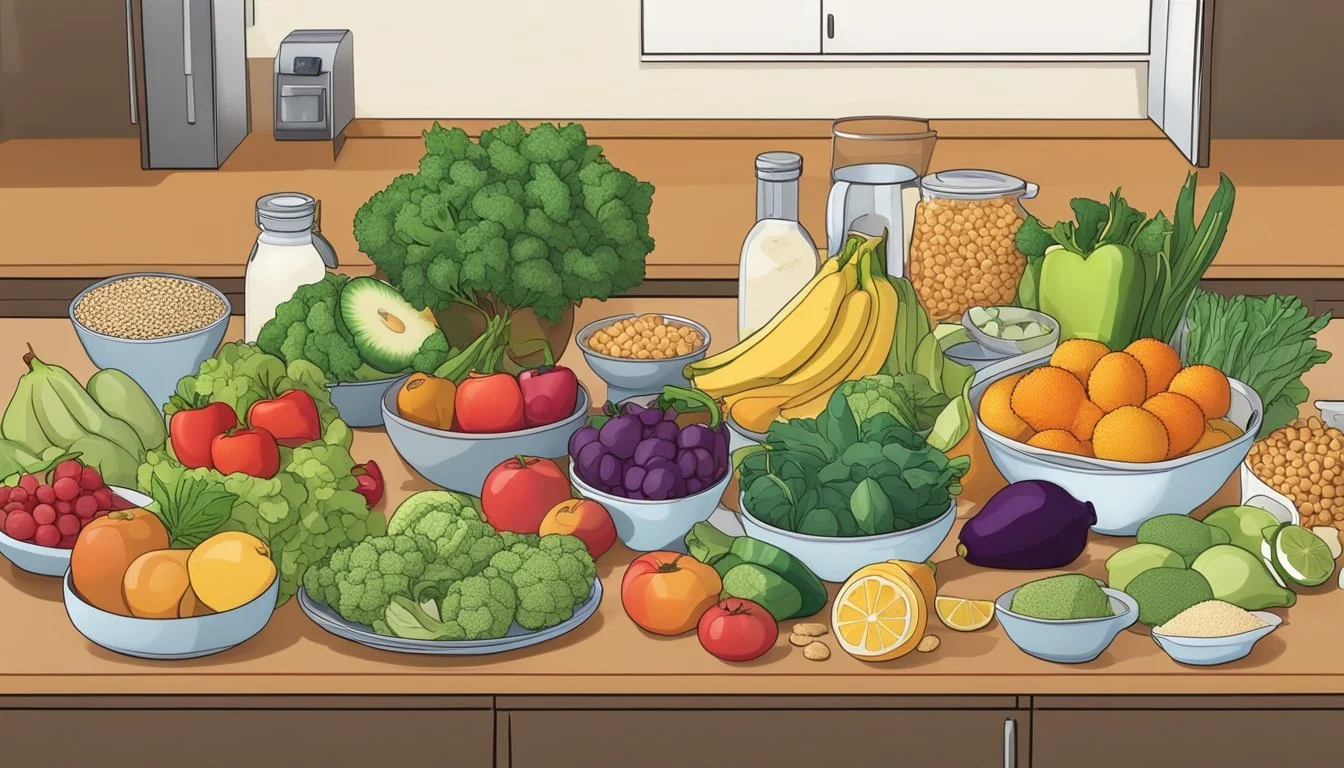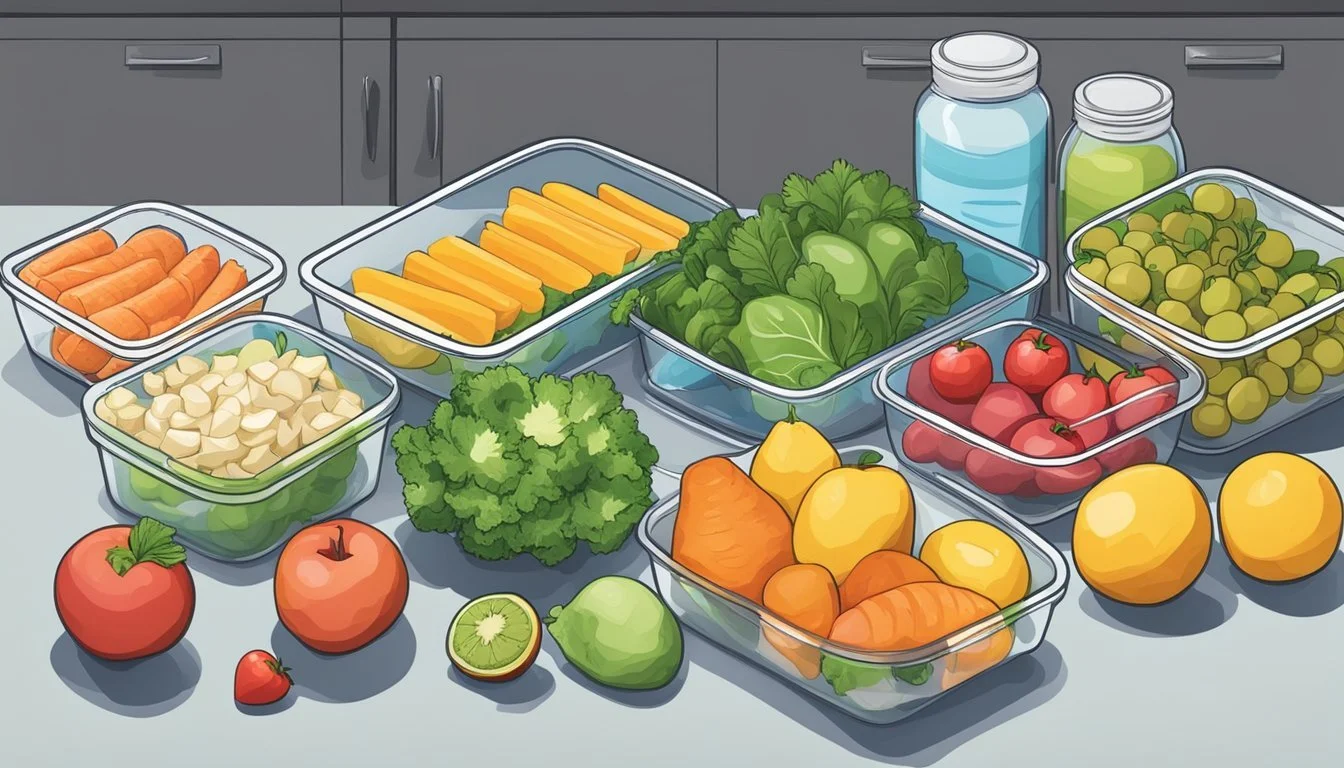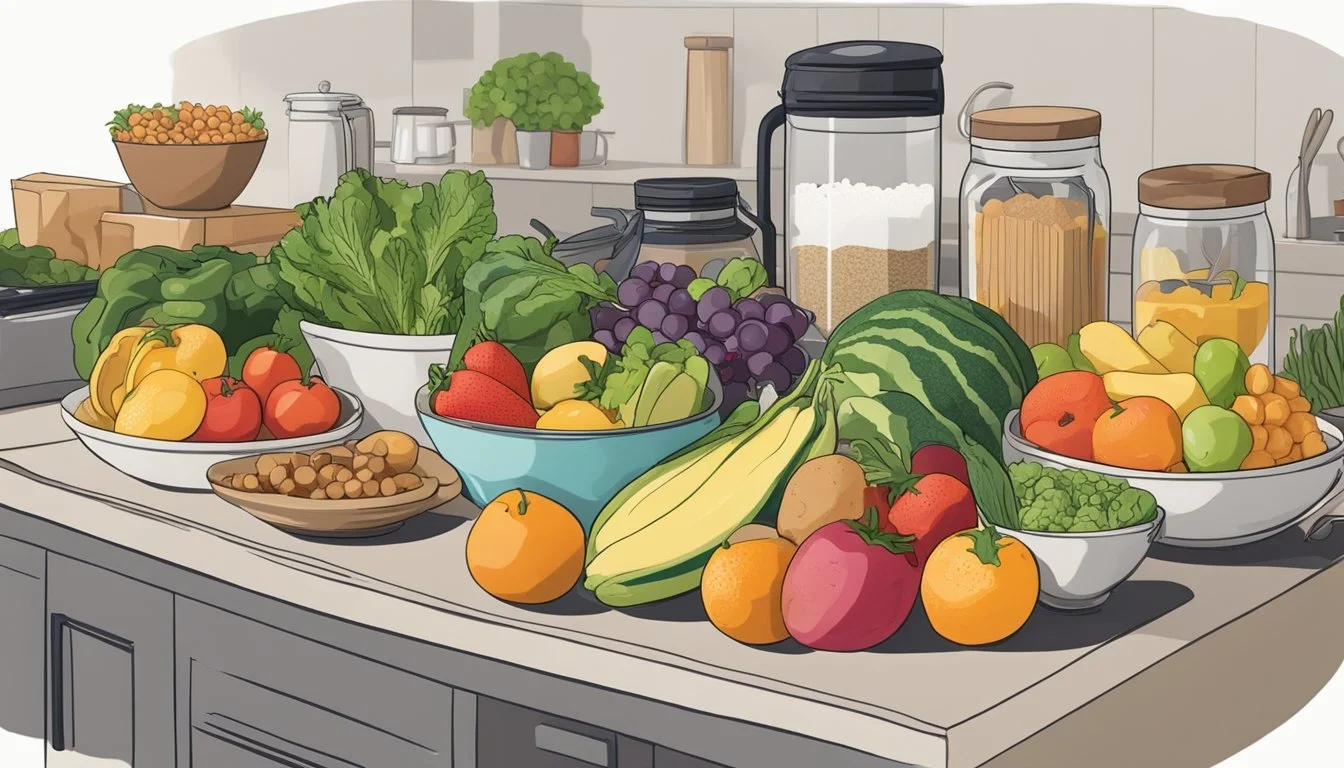Meal Prepping for Swimmers
Nutrient-Dense Recipes for Enhanced Performance
Swimmers are renowned for their rigorous training regimens and high energy expenditure, necessitating a diet that supports their demanding physical requirements. Meal prepping emerges as a crucial strategy for athletes looking to optimize their performance both in and out of the pool. By preparing nutrient-dense meals in advance, swimmers ensure a ready supply of the carbohydrates, proteins, and fats necessary to fuel their workouts, aid in recovery, and maintain overall health.
The foundation of healthy meal prep for swimmers revolves around the careful selection of ingredients that contribute to a well-rounded diet. Carbohydrates are essential for providing the energy needed for long training sessions, and selecting whole grains, fruits, and starchy vegetables offers sustained energy release. Proteins are vital for muscle repair and recovery, and can be sourced from lean meats, legumes, and dairy. Healthy fats, such as those found in nuts and certain oils, are also important for energy and supporting metabolism.
The process of meal prepping involves crafting a menu that incorporates a variety of nutrient-dense foods, portioning meals to meet individual dietary needs, and organizing them for easy access throughout the week. This not only saves time and reduces the temptation to opt for less nutritious quick-fix options but also encourages a consistent intake of essential nutrients. By integrating meal prep into their dietary habits, swimmers can focus on their training with the confidence that their nutritional needs are being adequately met.
The Importance of Nutrition for Swimmers
Nutrition significantly impacts a swimmer's performance and recovery. An optimal diet for swimmers should include the right balance of macronutrients and micronutrients, appropriate meal timing for energy regulation, and efficient hydration strategies.
Understanding Macros and Micros
Swimmers require a harmonious balance of macronutrients—carbohydrates, proteins, and fats—to fuel their bodies. Carbohydrates provide a quick source of energy and should come from complex carbohydrates such as whole grains and starchy vegetables for sustained energy. Proteins are crucial for muscle repair and recovery, and swimmers should focus on lean sources like chicken, fish, and legumes. Healthy fats, particularly omega-3 fatty acids, support joint health and reduce inflammation.
Protein: Essential for muscle repair; aim for lean sources like poultry, fish, and legumes.
Carbohydrates: Key for energy; choose complex forms such as whole grains and starchy vegetables.
Fats: Important for overall health; incorporate healthy fats such as avocados and nuts.
Micronutrients: Crucial for performance; include a variety of fruits and vegetables to obtain a mix of vitamins and antioxidants.
Energy Requirements and Meal Timing
Energy requirements for swimmers are high due to the intensive nature of their training. Meal prepping can be a time-efficient way to ensure nutrient-dense foods are always available. Meal timing is also crucial; eating the right foods at the right times aids in optimum energy levels and aids in weight management. Swimmers should prioritize a nutrient-dense meal 2-3 hours before training and a recovery meal or snack rich in protein and fiber within 30 minutes post-exercise.
Pre-Exercise: Consider complex carbohydrates with moderate protein.
Post-Exercise: Focus on protein for repair and carbohydrates for replenishment.
Hydration Strategies
Hydration is often understated but as critical as nutrition. Swimmers should maintain hydration levels not only during training but throughout the day. Fluid intake must be a combination of water and, occasionally, electrolyte drinks to replenish salts lost during intense workouts. Nutrient-dense smoothies can also serve as both a hydration and an energy source.
Water: The primary source of hydration; maintain consistent intake throughout the day.
Electrolyte Drinks: Supplement on training days to replenish electrolytes.
By adhering to these nutritional strategies, swimmers can enhance their performance, reduce injury risk, and support overall health in their pursuit of athletic excellence.
Essentials of Meal Prepping
Meal prepping for swimmers ensures a well-managed diet, essential for rigorous training routines. This section covers the foundational steps of this process, ranging from selecting containers to devising a meal prep schedule.
Choosing the Right Meal Prep Containers
Selecting appropriate containers is critical for effective meal planning. Mason jars are ideal for salads and smoothies due to their sealable and portable nature. On the other hand, meal prep containers should be airtight to keep food fresh. Look for BPA-free containers that fit your budget and are microwave-safe for reheating convenience.
Glass Containers: Durability & Health
Plastic Containers: Lightweight & Cost-effective
Kitchen Tools and Equipment
A swimmer’s kitchen should be equipped with tools that streamline the meal prep process. A quality set of knives ensures efficient chopping of nutrient-dense vegetables and proteins, while a blender is indispensable for smoothies and recovery drinks. Furthermore, having a food processor can simplify meal prep, especially for weekly batch preparation.
Knives and Cutting Boards
Measuring Cups and Spoons
Blender and Food Processor
Mixing Bowls
Storing and Reheating Tips
Proper storage extends the shelf life of prepped meals and maintains food safety. Swimmers should refrigerate meals at 40°F or below and use them within 3-4 days. For freezing, wrapped tightly to avoid freezer burn. When reheating, they must ensure meals reach an internal temperature of 165°F to ensure food safety.
Refrigerate: Keep at or below 40°F
Freeze: Tightly wrapped, up to 3 months
Reheat: Internal temperature of 165°F
Planning Your Meal Prep Schedule
Swimmers should devote time to weekly meal prep to focus on training without daily cooking distractions. The schedule could include a shopping day, prep day, and smaller time slots for packing daily meals. Consistent planning helps maintain a routine and ensures nutrient-dense meals align with training requirements.
Shopping Day: List items according to meal plan
Prep Day: Batch cook and assemble meals
Daily Routine: Allocate meals per training sessions
By integrating these fundamental aspects, swimmers can facilitate a seamless meal prepping experience, supporting both their athletic performance and nutritional needs.
Creating a Balanced Meal Plan
Meal prepping for swimmers revolves around designing a nutrient-dense, protein-packed plan that suits their energy demands. The meal plan should be cost-effective, flavorful, and cohesive with various dietary preferences and requirements.
Calculating Portion Sizes
Swimmers require substantial energy intake to maintain performance, making portion sizes crucial. A balanced meal plan should allocate appropriate proportions of macronutrients: 50-60% carbohydrates, 12-15% protein, and 20-30% fats. For instance, a 70 kg swimmer may need about 0.8 to 1 g/kg of protein per day. Using a simple calculation, this translates to 56-70 grams of protein daily.
Incorporating Variety
Diversity in a meal plan prevents nutritional deficiencies and keeps meals interesting. Swimmers can construct a versatile grocery list that includes:
Carbohydrates: Whole grains (quinoa, brown rice), potatoes, and fruits.
Proteins: Chicken, eggs, legumes, and plant-based proteins like tofu.
Fats: Nuts, seeds, and avocados.
Vegetables: A wide array to ensure micronutrient intake.
Ensuring a range of colors and textures can also enhance meal enjoyment.
Addressing Specific Dietary Needs
Swimmers with specific dietary needs require tailored meal plans. For instance:
Plant-based diets should emphasize complete proteins, combining legumes with grains.
Keto-friendly options focus on high-fat, low-carb foods such as seafood, cheese, and leafy greens.
When prepping meals, it's essential to consider the individual's budget, allowing for cost-effective meal planning without compromising nutritional value.
Recipes and Meal Ideas
Tailored specifically for swimmers, the following meal prep ideas focus on high-protein breakfast options, nutritious lunches (What wine goes well with lunch?), energizing dinners, and wholesome snacks. Each recipe is designed to bolster performance, support recovery, and maintain overall health.
High-Protein Breakfast Options
For swimmers, starting the day with a high-protein breakfast is crucial for maintaining energy levels and supporting muscle repair.
Garden Veggie Frittata: Loaded with veggies and eggs, this frittata is high in protein and bursting with essential vitamins and minerals.
Overnight Oats with Seeds and Nuts: Prepare with skim milk, mix in chia seeds for added omega-3s, and top with a selection of nuts for a protein-rich start to the day.
Nutrient-Dense Lunches
Lunches that are rich in nutrients yet light enough to prevent sluggishness in the water are ideal for swimmers.
Quinoa Salad with Chicken: Combine quinoa with diced chicken breasts, a variety of colorful vegetables, and a lemon vinaigrette for a balanced meal.
Bean Wraps: Fill whole-grain wraps with a mix of black beans, corn, diced tomatoes, and avocado for a lunch rich in fiber and protein.
Energizing Dinner Recipes
Dinners should provide a mix of protein, complex carbohydrates, and vegetables to promote recovery and prepare for the next day's training.
Grilled Chicken Thighs (What wine goes well with chicken thighs?) with Steamed Vegetables: Serve succulent grilled chicken thighs alongside a medley of steamed vegetables for a satisfying meal.
Pork Tenderloin (What wine goes well with pork tenderloin?) with Roasted Cauliflower: Pair a lean pork tenderloin with nutrient-dense roasted cauliflower for an anti-inflammatory boost.
Healthy Snack and Side Options
Swimmers require snacks that deliver sustained energy and assist with recovery between meals and workouts.
Fruit Salad with Yogurt: Combine seasonal fruits with low-fat Greek yogurt for a snack that offers a natural sweetness and protein.
Hummus and Veggie Sticks: Dip an assortment of vegetable sticks into a protein-packed hummus for a quick and healthy snack.
Meal Prep for Various Training Phases
Swimmers' dietary needs vary considerably through different training phases. During each phase, meal prepping can ensure consistent intake of complex carbohydrates, healthy fats, and lean proteins to support the swimmer's performance and recovery.
Off-Season Meal Preparation
In the off-season, swimmers may focus on building muscle and increasing strength. Meals should be rich in lean proteins such as chicken and fish to support muscle repair and growth. Incorporating a variety of produce ensures intake of essential vitamins and antioxidants. Healthy fats, particularly omega-3 fatty acids found in nuts and seeds, contribute to overall health.
Lean Proteins: Grilled chicken strips (4 oz portions)
Veggies: Mixed kale and spinach salads with colorful bell peppers
Complex Carbohydrates: Quinoa, sweet potatoes, and wholegrain bread
Healthy Fats: Avocado slices, walnuts, and flaxseeds in salads
Pre-Competition Meal Stacking
Pre-competition meals focus on maximizing energy stores with a higher intake of complex carbohydrates. These meals should be prepared in advance to allow for tapering and rest before the event.
Complex Carbohydrates: Brown rice, oatmeal, and pasta
Lean Proteins: Baked salmon fillets (4 oz portions)
Veggies: Steamed broccoli, carrots, and asparagus for essential nutrients
Fruits: Bananas and berries for quick energy and recovery
Recovery Meals and Snacks
Post-training or competition, recovery meals are essential for replenishing energy stores and providing nutrients for muscle repair. Meal preps that combine complex carbohydrates and lean proteins can help expedite recovery.
Carbohydrates: Whole wheat bread, rice cakes, and starchy vegetables like peas
Proteins: Cottage cheese and Greek yogurt are convenient options
Healthy Fats: Handfuls of almonds or chia seed pudding for quality fats
Antioxidants: Fruit smoothies with spinach and kale to combat oxidative stress
Shopping and Budgeting Tips
Smart shopping and budgeting are crucial for a swimmer's meal prep routine, allowing them to fuel up with nutrient-dense foods without breaking the bank.
Creating an Efficient Grocery List
They should start by listing all necessary ingredients for their meal plan, prioritizing items like legumes, kale, and other vegetables, which offer the necessary vitamins and proteins for a swimmer's diet. Swimmers should assess their pantry first to avoid purchasing duplicate items, and then organize their grocery list by store sections such as produce, dairy, and grains.
Pantry Staples: oatmeal, brown rice, quinoa
Produce: kale, berries, sweet potatoes
Proteins: beans, lentils, eggs, chicken breast
Dairy: Greek yogurt, milk
Finding Cost-Effective Ingredients
They should seek out budget-friendly and nutritional ingredients. This often means opting for dry or canned goods like beans and lentils, which are not only affordable but also rich in protein. Seasonal produce can often be cheaper and fresher, providing better value and flavor for meals.
Seasonal Produce: Purchase what is currently in season.
Bulk Buying: Consider larger packs of chicken or fish, which can be portioned and frozen.
Sales and Discounts: Look out for sales on staple items and stock up.
Meal Prepping on a Budget
Consistency is key in meal prepping on a tight budget. By cooking large quantities and using similar ingredients across different meals, swimmers make the most of their groceries. A focus on versatile staples such as rice, oatmeal, and beans allows for a variety of meals without additional cost.
Cook in Batches: Prepare large amounts of basic ingredients like grains and proteins.
Versatile Staples: Use oatmeal for breakfasts, and beans or lentils for lunches and dinners.
Proper Storage: Invest in quality containers to keep prepped meals fresh throughout the week.
Customizing Meal Prep to Fit Your Goals
Swimmers have distinct nutritional needs that vary according to their training goals. Effective meal prep reflects these objectives, whether aiming for weight loss, muscle building, or adapting to lower activity levels on rest days.
Weight Loss-Focused Meal Prepping
When meal prepping with the aim of weight loss, it's essential to create a calorie deficit while ensuring ample nutrition. Meals should be rich in fiber and protein to promote satiety and limit caloric intake.
Protein: Opt for lean protein sources like chicken, turkey, or fish, which contribute to a feeling of fullness without excessive calories.
Vegetables: Incorporate a variety of non-starchy vegetables to deliver essential nutrients and fiber.
Healthy Fats: Include moderate portions of healthy fats from sources like avocados or nuts, which are vital for overall health.
Carbohydrates: Choose whole grains or legumes such as quinoa or beans, which offer sustained energy release and added protein.
Building Muscle and Performance
For swimmers focusing on muscle growth and enhanced performance, meals need to be rich in protein-packed sources and balanced with carbohydrates for energy replenishment.
Protein: Prioritize higher protein intake from sources like lean beef, eggs, or dairy to support muscle repair and growth.
Carbohydrates: Integrate complex carbohydrates like brown rice or sweet potatoes to provide the required fuel for intense training.
Timing: Plan to eat protein-rich meals and snacks after workouts to aid in muscle recovery.
Healthy Fats: Don't shy away from healthy fats; they are crucial for hormonal health and energy.
Adapting Meal Prepping for Rest Days
On rest days, swimmers should adjust their meal prep to accommodate a lower energy expenditure while maintaining nutrition to support recovery.
Reduce Carbohydrates: Decrease portions of carbohydrates to match the reduced activity level.
Maintain Protein: Keep protein intake consistent to aid in muscle repair and ward off muscle loss.
Vegetables and Fruits: Continue to eat a variety of vegetables and fruits for their vitamins and minerals, which are pivotal for recovery processes.
Hydration: Focus on hydration, as it's just as important on rest days for bodily functions and recovery.
Overcoming Common Meal Prep Challenges
Meal prepping is indispensable for swimmers aiming to maintain a balanced diet, but it is not without its hurdles. This section provides strategic solutions to help swimmers stay consistent with their meal prep routine.
Managing Time and Efficiency
One often encounters the challenge of fitting meal preparation into a hectic schedule. They can increase efficiency by setting aside specific times during the week for bulk cooking. Batch cooking and make-ahead meals ensure that swimmers have healthy options ready, reducing the likelihood of opting for less nutritious choices. Using meal prep containers that separate ingredients can prevent sogginess and preserve the freshness of each component until it's time to eat.
Keeping Meals Fresh and Tasty
To prevent meals from becoming monotonous, incorporating a variety of flavors and sauces can keep the taste buds tantalized throughout the week. Swimmers should consider packing meals with a mix of colorful and nutrient-dense vegetables, lean proteins, and whole grains to ensure a spectrum of nutrients and flavors. Storing dressings and sauces separately and adding them just before eating can keep meals vibrant and tasty.
Dealing with Dietary Restrictions
Athletes with specific dietary needs, whether keto-friendly, plant-based protein, or other restrictions, must plan accordingly. They should focus on a diverse selection of ingredients that meet their nutritional requirements. Swimmers on a plant-based diet can ensure sufficient protein intake through legumes, tofu, and tempeh. Those following a keto diet might prioritize high-fat and low-carb ingredients, focusing on meals rich in healthy fats like avocados and nuts. A thorough understanding of one’s dietary needs is key to successful meal prep, making mealtime both enjoyable and in line with their training requirements.
Conclusion
Meal prepping stands as a strategic approach to maintaining a balanced diet, particularly for swimmers who require nutrient-dense meals to support their rigorous training schedules. Through effective meal prep, swimmers can ensure they obtain the necessary carbohydrates, proteins, and vitamins essential for optimal performance and recovery.
Healthy meal prep involves incorporating a variety of whole grains, such as oats and quinoa, alongside lean protein sources like salmon and legumes. Swimmers benefit from a mix of fruits and vegetables to secure essential vitamins and minerals. Meal prep recipes are designed to be easily portioned and stored, which simplifies the process of fuelling the body during training cycles and competitions.
To streamline the meal prepping process, swimmers should consider:
Planning: outlining meals for the week can prevent last-minute decisions and ensure a balance of nutrients.
Simplicity: choosing recipes with overlapping ingredients can minimize cooking time and reduce waste.
Portability: selecting meals that are easy to transport helps swimmers maintain their diet on the go.
Swimmers who engage in meal prepping can enjoy enhanced performance, better recovery, and a more consistent intake of nutrient-rich foods. It's a powerful tool that aligns with the demands of their sport and promotes overall well-being.


